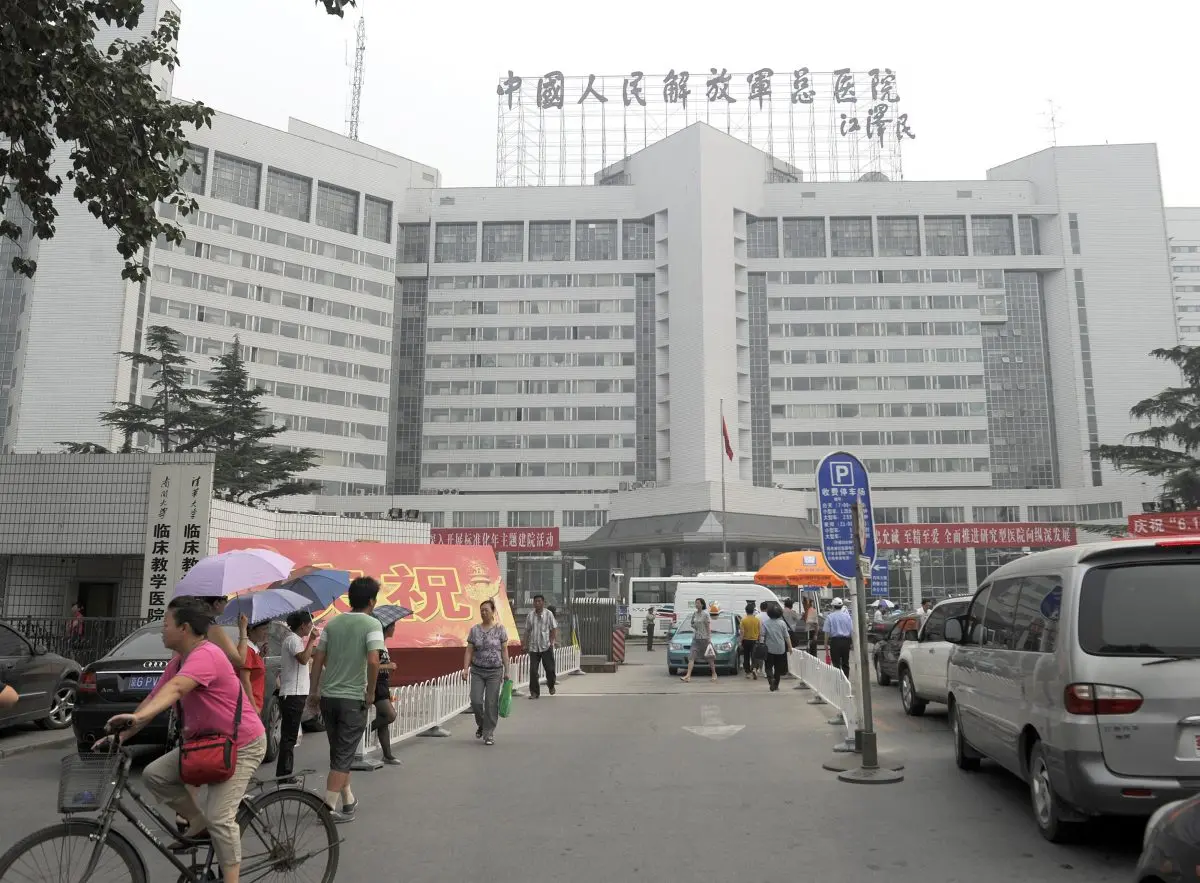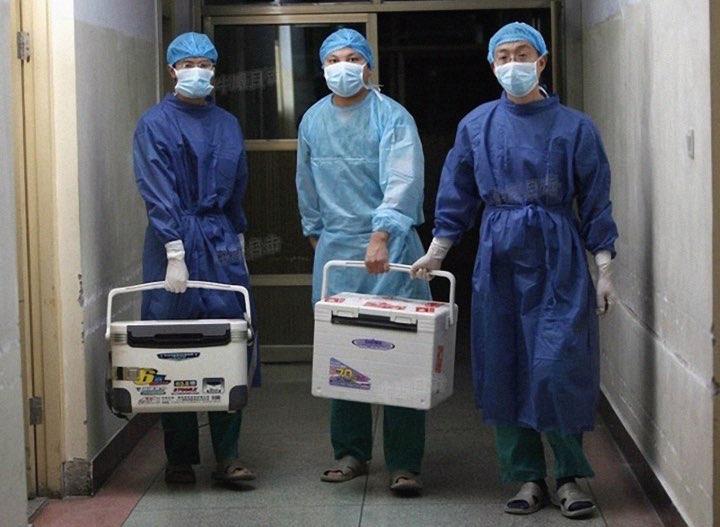Rep. Chris Smith (R-N.J.) said that the Chinese Communist Party (CCP) forcibly harvests organs from prisoners of conscience, including Falun Gong practitioners, while still alive, because of their excellent health, and transplants them into elderly CCP officials to extend their lives.

In a press release on the day the bill passed, Smith stated that the bill is intended to combat the CCP’s “ghoulish industry of stealing organs from young people,” especially Falun Gong practitioners, “whose peaceful meditation and exercise practices—and exceptional good health—make their organs highly desirable.”
“We also know though open-source Chinese language media that elderly high ranking Chinese Communist Party officials have received replacement organs from the very people they despise and oppress at the People’s Liberation Army Hospital 301 in Beijing,” the statement read.
Jing Suo, a Falun Gong practitioner from Liaoning Province who now lives in the United States, agreed with Smith’s statement. Jing told the Chinese-language Epoch Times on March 29 that Falun Gong practitioners are often looked down upon and have no social status in China.
Aim to Prolong Lives to 150
In a video ad that went viral on Sept. 15 of 2019, Beijing’s 301 Hospital, touted that it was running a project dedicated to maintaining Chinese leaders’ health and that the next stage is prolonging their lives to 150 years.The ad was shown on WeChat, a Facebook-like social media platform. It soon sparked public outrage and was blocked the next day.

“With 60 years of development, the health project for our leaders has made tremendous progress,” the ad says. “From preventative medicine, medical care to recuperation, this comprehensive project focuses on prevention of cancer and cardiovascular disease, anti-aging, chronic disease management, regeneration of organ function, and healthy lifestyles. It is a unique health regimen that combines traditional Chinese medicine principles with Western medical technology.”
The ad claimed that this health regimen is the best in the world, and supports this claim by saying that the average life expectancy of the CCP leaders is 88, based on available data in 2008. This is generally older than that of the leaders of Western developed countries.
CCP Officials Receiving Organ Transplants
Gao Zhanxiang, former Deputy Minister of Culture and Vice Chairman of the China Federation of Literary and Art Circles, died of illness on Dec. 9, 2022, in Beijing. A eulogy released by another CCP official revealed that Gao had undergone multiple organ transplant surgeries when he was alive.The eulogy said: “In recent years, Gao Zhanxiang has been fighting against illness with perseverance. He has replaced many of his internal organs, and joked that many of his ‘parts’ were not his own.”
Another CCP official, Jin Renqing, was also found to be a transplant recipient as a result of a eulogy. A former Chinese Minister of Finance, he passed away on August 27, 2021, at his home in Beijing. A close friend released a eulogy online, saying that Jin had received the heart of a 28-year-old man.
CCP Maintains a Massive Live Organ Donor Pool
The World Organization to Investigate the Persecution of Falun Gong (WOIPFG), based in the United States, has investigated over more than a decade and found that the CCP maintains a massive live organ donor pool for its organ transplant industry.According to WOIPFG investigation reports, evidence reveals that after the CCP began persecuting Falun Gong in 1999, China’s organ transplant industry saw explosive growth. Waiting times for organs were extremely short. There were shocking numbers of emergency transplants, using people alive as backup donors. Multiple transplant surgeries were conducted simultaneously. For instance, a Chinese hospital performed 24 kidney or liver-kidney transplants in a single day. The donor organs were found to have no or extremely short warm ischemia time. Ischemia time refers to the time the blood supply to the organ is cut off until it is restored after transplantation.

After the first public exposure of live organ harvesting in 2006, there was suddenly a spike in organ transplants in China and even free liver and kidney transplant promotions. Meanwhile, detained Falun Gong practitioners, who were being subjected to physical and mental abuse, were also forced to take blood tests, but were never informed of the results.
CCP’s Most Sensitive Nerve
In an interview with The Epoch Times on March 30, China expert and U.S.-based political commentator Tang Jingyuan stated that the passage of the recent bill in the U.S. House of Representatives, which directly sanctions the CCP for forced organ harvesting and specifically mentions Falun Gong, has struck a nerve with the CCP, touching upon one of their most sensitive issues.Tang explained that there is an important background to this bill. After the CCP launched its persecution of Falun Gong in 1999, it has used almost all resources to silence and cover up the persecution worldwide, which has made many Western governments reluctant to directly mention Falun Gong in government-level discussions.
“These governments didn’t want to offend the CCP,” Tang said. “But now ... the United States is becoming increasingly aware that the CCP is exporting its evil means of persecuting its own people to the international community. Now the U.S. officials are directly sanctioning the CCP for forced organ harvesting, which is the most crucial issue, and directly mentioning Falun Gong, which is equivalent to hitting the CCP’s most sensitive nerve.”






